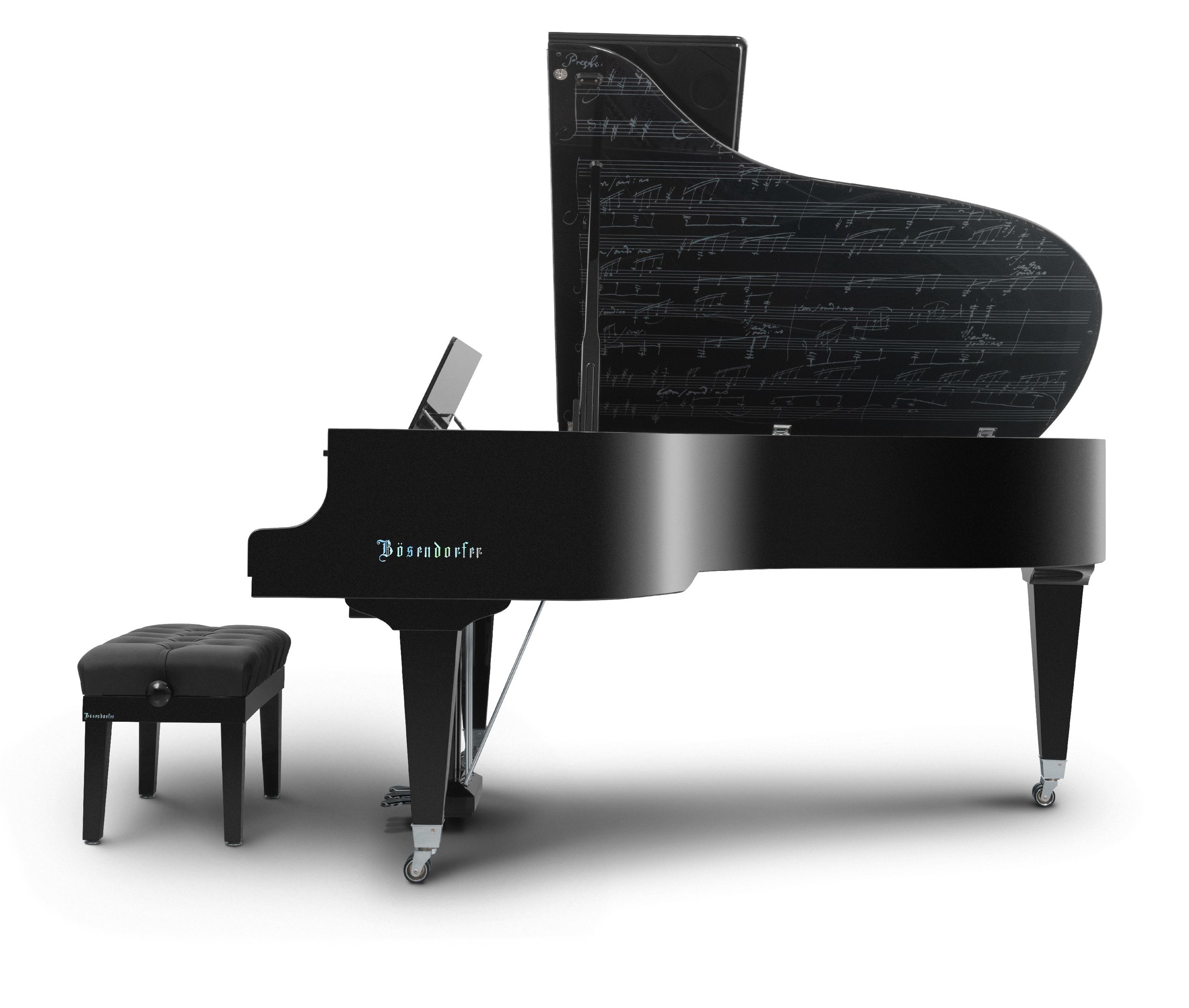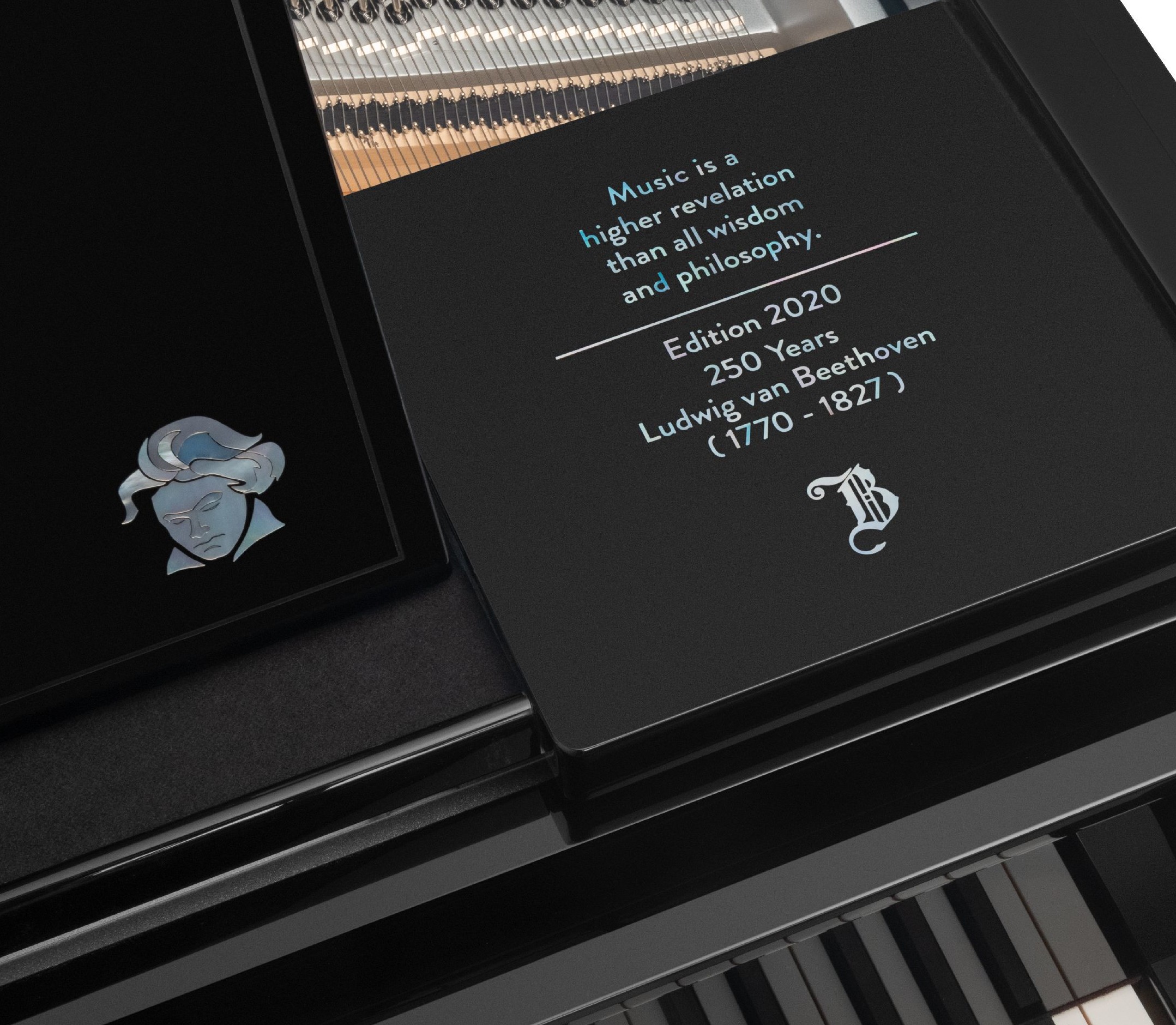Be embraced, millions! - Celebrating Beethoven's 250th Birthday
Beethoven is everywhere - especially in Vienna. He composed all of his masterpieces here, 1 opera, 5 piano concertos, 9 symphonies, 32 piano sonatas, and much more and thereby cemented Vienna’s position as the musical centre of Europe. Today, Beethoven is the most frequently played composer in the world and his Ninth Symphony is the most frequently performed work worldwide. He led music of the Viennese Classical era to its highest degree of development and paved the way toward Romanticism in music.
For his 250th birthday, Bösendorfer honours this great composer with a Limited Edition Grand Piano.


